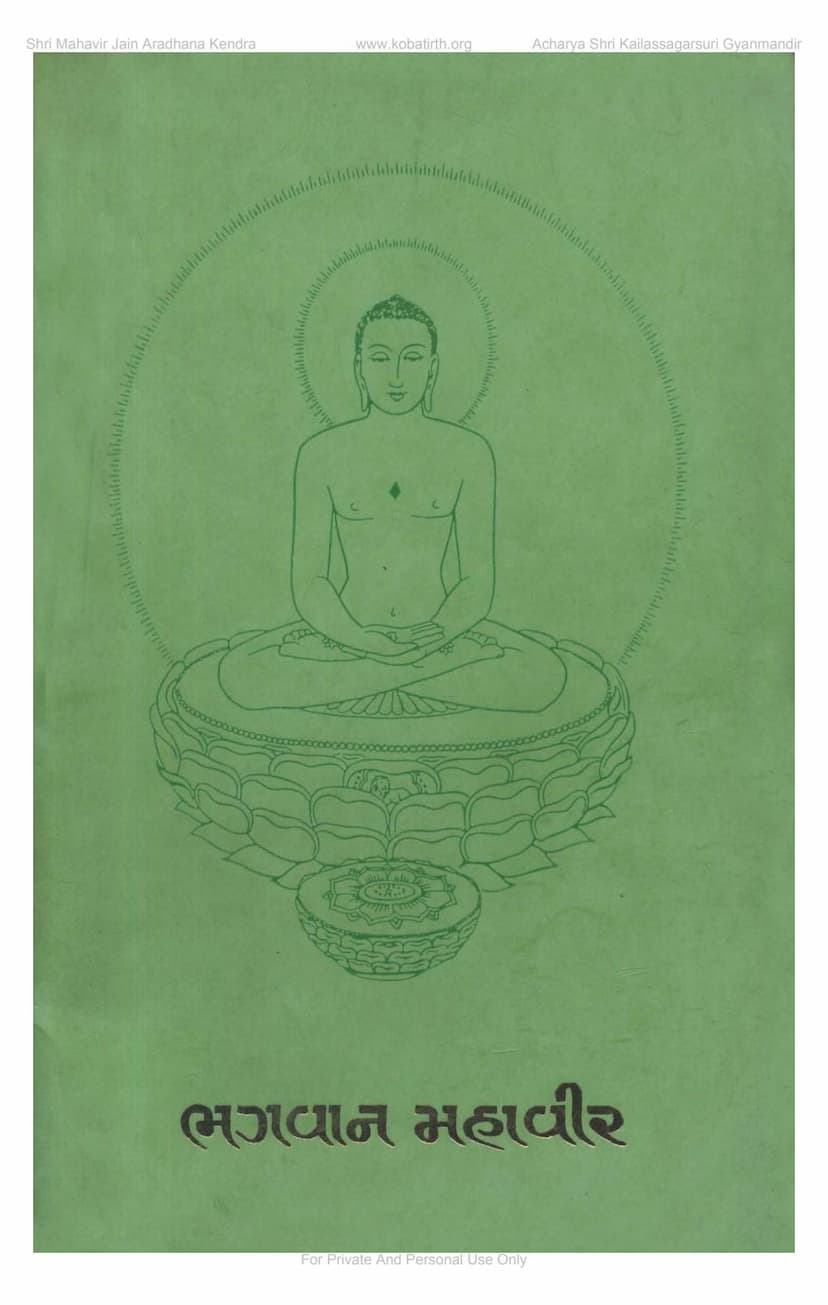Bhagawan Mahavir
Added to library: September 1, 2025
Loading image...

Summary
This document, titled "Bhagawan Mahavir" by Rajendra M Shah, is a comprehensive narrative and exposition on the life, teachings, and spiritual significance of Lord Mahavir, the 24th Tirthankara of Jainism. The text is presented with an invocation and a tribute, setting a reverent tone.
Key aspects covered in the document include:
- Mahavir's Teachings and Philosophy: The book highlights Mahavir's core teachings, particularly the principle of Anekantavada (multi-sidedness of reality), which is emphasized through a quote from Mahatma Gandhi. Gandhi's personal experience with Anekantavada, as quoted on page 2, underscores its transformative power in fostering understanding and respecting diverse perspectives.
- Biographical Narrative: The document provides a detailed account of Mahavir's life, starting from his birth. It describes his lineage, the auspicious dreams of his mother (Queen Trishala), the divine intervention of deities like Indra in his early life, and the naming ceremony where he was given the name "Mahavir" due to his immense courage.
- Spiritual Journey and Asceticism: The text vividly narrates Mahavir's renunciation of worldly possessions and family life to embrace asceticism. It details his rigorous penances, the twelve and a half years of intense spiritual discipline, and his unwavering commitment to the five great vows (Mahavratas): non-violence (ahimsa), truthfulness (satya), non-stealing (asteya), chastity/celibacy (brahmacharya), and non-possession/non-attachment (aparigraha).
- Overcoming Adversities (Upsargas): A significant portion of the book is dedicated to describing the numerous challenges and sufferings (upsargas) that Mahavir endured during his asceticism. These included physical torments, psychological attacks from beings like Sangam Deva, and even physical harm, all of which he bore with equanimity and unwavering determination. The text emphasizes his compassion even towards those who caused him suffering.
- Attainment of Kevala Jnana: The document chronicles Mahavir's attainment of Kevala Jnana (omniscience) under the Ashoka tree after completing his intense spiritual practices. This omniscient state is described as the culmination of his self-purification and liberation from karmic bonds.
- Preaching and Discipleship: Following his enlightenment, Mahavir delivered sermons for 30 years, spreading the Jain dharma. The text mentions the establishment of the four-fold Jain community (monks, nuns, laymen, and laywomen) and the ordination of his chief disciples, including the eleven Gandharas.
- Legacy and Final Liberation (Nirvana): The book concludes with Mahavir's final discourse and his liberation (Nirvana) at Pavapuri, where his soul attained eternal peace and resided on the Siddhashila. The text concludes with a universal prayer for the well-being of all beings, echoing the spirit of Mahavir's teachings.
Key Themes and Messages:
- Ahimsa (Non-violence): The paramount importance of non-violence in thought, word, and deed is a central theme, highlighting Mahavir's profound compassion for all living beings.
- Self-Discipline and Austerity: The text emphasizes the role of rigorous self-discipline, penance, and detachment in achieving spiritual liberation.
- Equanimity (Samata): Mahavir's ability to remain unfazed by praise or blame, pleasure or pain, is presented as a model for spiritual conduct.
- Compassion and Forgiveness: The narrative underscores Mahavir's boundless compassion and forgiveness, even towards his tormentors.
- The Path to Liberation: The book outlines the Jain path to moksha (liberation) through right faith, right knowledge, and right conduct, as exemplified by Mahavir.
The document is rich with illustrative imagery and poetic descriptions, aimed at conveying the spiritual grandeur and the profound ethical and philosophical teachings of Bhagawan Mahavir. It is a devotional and informative work intended for personal study and reflection, as indicated by the repeated phrase "For Private And Personal Use Only."